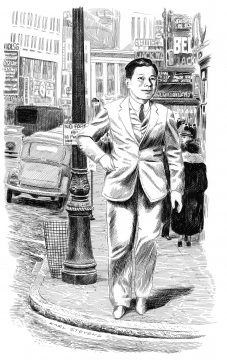Ed Park in the New York Review of Books:

What if the finest, funniest, craziest, sanest, most cheerfully depressing Korean-American novel was also one of the first? To a modern reader, the most dated thing about Younghill Kang’s East Goes West, published by Scribner’s in 1937, is its tired title. (Either that or its subtitle, “The Making of an Oriental Yankee.”) Practically everything else about this brash modernist comic novel still feels electric.
East Goes West has a ghostly history: at times vaguely canonical, yet without discernible influence, it has been out of print for decades at a stretch, and surfaces every quarter-century or so as a sort of literary Brigadoon. (Last year’s Penguin Classics edition is its third major republication.) Kang’s debut, The Grass Roof (1931), captures the twilight of the Korean kingdom in the first two decades of the twentieth century, as Japan colonizes the peninsula. Its narrator, Chungpa Han, is a precocious child whose thirst for education takes him from his secluded home village to Seoul, three hundred miles away; into the heart of Japan; and finally to America, where East Goes West picks up on the pilgrim’s progress.
Though both novels were first published to great acclaim by Maxwell Perkins—the legendary editor of Fitzgerald, Hemingway, and Thomas Wolfe—they stand as the alpha and omega of Kang’s fiction career: an explosion of talent, followed by thirty-five years of silence.
More here.
